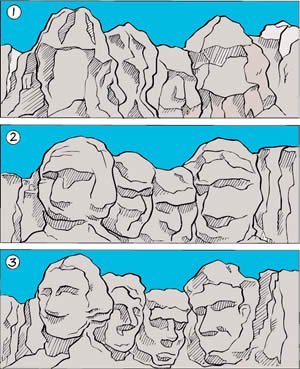Is There Really a God?
When Christians claim that the God of the Bible created all the basic entities of life and the universe, some will ask what seems to be a logical question: “Who created God?”
In our everyday experience, just about everything seems to have a beginning. In fact, the laws of science show that even things which look the same through our lifetime, such as the sun and other stars, are, in reality, running down. The sun is using up its fuel at millions of tons each second—since the sun cannot last forever, it had to have a beginning. The same can be shown to be true for the entire universe.
So when Christians claim that the God of the Bible created all the basic entities of life and the universe, some will ask what seems to be a logical question: “Who created God?”
The very first verse in the Bible declares: “In the beginning God ... .” There is no attempt in these words to prove the existence of God or imply in any way that God had a beginning. In fact, the Bible makes it clear in many places that God is outside time. He is eternal, with no beginning or end. He also knows all things, being infinitely intelligent.
Is it logical, though, to accept the existence of such an eternal being? Can modern science, which has produced our technology of computers, space shuttles, and medical advances, even allow for such a notion?1
What Would We Look For?
What evidence would we expect to find if there really is an infinite God who created all things as the Bible claims? How would we even recognize the hand of such an omnipotent (all-powerful) Creator?
The Bible claims that God knows all things—He is omniscient! Therefore, He is infinitely intelligent. To recognize His handiwork, one would have to know how to recognize the evidence of the works of His intelligence.
How Do We Recognize the Evidence of Intelligence?
Why do scientists become so excited when they discover stone tools together with bones in a cave? The stone tools show signs of intelligence. The scientists recognize that these tools could not have designed themselves but that they are a product of intelligent input. Thus, the researchers rightly conclude that an intelligent creature was responsible for making these tools.


In a similar way, one would never look at the Great Wall of China, the U.S. Capitol building in Washington, D.C., or the Sydney Opera House in Australia and conclude that such structures were formed after explosions in a brick factory.
Neither would anyone believe that the presidents’ heads on Mt. Rushmore were the products of millions of years of erosion. We can recognize design, the evidence of the outworkings of intelligence. We see man-made objects all around us—cars, airplanes, computers, stereos, houses, appliances, and so on. And yet, at no time would anyone ever suggest that such objects were just the products of time and chance. Design is everywhere. It would never enter our minds that metal, left to itself, would eventually form into engines, transmissions, wheels, and all the other intricate parts needed to produce an automobile.
This “design argument” is often associated with the name of William Paley, an Anglican clergyman who wrote on this topic in the late eighteenth century. He is particularly remembered for his example of the watch and the watchmaker. In discussing a comparison between a stone and a watch, he concluded that “the watch must have had a maker; that there must have existed, at some time and at some place or other, an artificer or artificers, who formed it for the purpose which we find it actually to answer; who comprehended its construction, and designed its use.”2
Paley thus believed that, just as the watch implied a watchmaker, so too does design in living things imply a Designer. Although he believed in a God who created all things, his God was a Master Designer who is now remote from His Creation, not the personal God of the Bible.3
Today, however, a large proportion of the population, including many leading scientists, believe that all plants and creatures, including the intelligent engineers who make watches, cars, etc., were the product of an evolutionary process— not a Creator God.4 But this is not a defensible position, as we will see.
To continue reading this article visit: https://answersingenesis.org/is-god-real/is-there-really-god/
Source: AnswersinGenesis.org





































